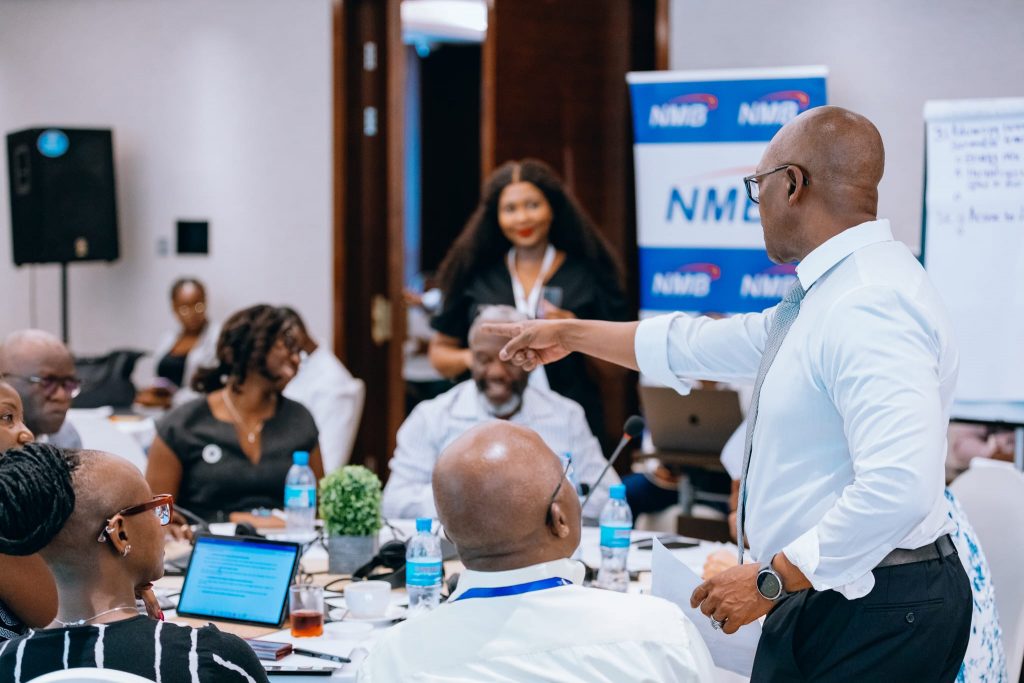
I am delighted to share my recent experience of being invited as a speaker at the 7th African Social Partners’ Summit, which took place on the 7th and 8th of February 2024 in Dar Es Salaam. This collaborative effort between International Organisation of Employers (IOE) and local organizations aimed to bring together national business organizations, employers’ representatives, trade unions, government ministries, international organizations, financial institutions, think tanks, and youth representatives to monitor progress and challenges in job creation across Africa’s diverse nations.
One of the key themes I advocated throughout the summit was the pivotal role of cybersecurity and artificial intelligence (AI) in driving digital transformation. As our world becomes increasingly interconnected and reliant on digital technologies, governments and businesses today must adapt to this rapidly evolving landscape to effectively meet the needs of their citizens and customers while fostering job creation.
Digital transformation encompasses the integration of digital technologies into all aspects of government and business operations, financial transactions, service delivery, and citizen/customer engagement and while leveraging digital technologies, can enhance efficiency, transparency, and accessibility in service delivery, ultimately contributing to job creation and economic growth, however, with these opportunities come significant challenges, particularly in the area of cybersecurity.
With the rapid digitalization across Africa has made the region a target for cyberattacks. Criminals exploit increased smartphone usage to steal personal data and carry out fraudulent schemes, posing significant risks to job security and economic stability.
According to Interpol the current rapid digitalization across Africa has made the region a target for cyberattacks. Criminals exploit the increased use of smartphones to steal personal data and carry out fraudulent schemes. The biggest cyber threats in Africa include digital extortion, ransomware, online scams (such as phishing) and business email compromise.
Therefore, investing in robust cybersecurity infrastructure and implementing proactive strategies to mitigate cyber risks are paramount for safeguarding government systems, citizen information, and ultimately, job opportunities.
Furthermore, the integration of AI technologies presents immense opportunities for enhancing government operations and service delivery. AI-powered solutions can automate routine tasks, analyze vast amounts of data to derive actionable insights, and improve decision-making processes across various government departments. Whether it’s optimizing traffic flow in urban areas, predicting disease outbreaks, or enhancing public safety, the applications of AI in governance are endless. However, with the adoption of AI comes ethical considerations, data privacy concerns, and the need for transparent governance frameworks to ensure accountability and fairness.
During the panel discussion, I emphasized the importance of a holistic approach to digital transformation, one that prioritizes cybersecurity as core components of any government and business strategy and underscored the need for collaboration between government agencies, private sector partners, and civil society organizations to address the multifaceted challenges posed by digital transformation effectively.
Key Takeaways From My Session:
- Holistic Approach to Digital Transformation: I emphasized the importance of adopting a holistic approach to digital transformation, one that integrates cybersecurity and AI as core components of government strategy. A comprehensive approach ensures that governments in Tanzania and across Africa can harness the full potential of technology while safeguarding against emerging threats.
- Collaborative Partnerships: Collaboration between government agencies, private sector partners, academia, and civil society organizations is essential for addressing the multifaceted challenges posed by digital transformation. By fostering collaborative partnerships, we can leverage collective expertise and resources to drive meaningful impact and innovation.
- Investment in Cybersecurity Infrastructure: Investing in robust cybersecurity infrastructure is paramount for safeguarding government systems and citizen data. Governments must allocate resources towards enhancing cybersecurity capabilities, including threat detection, incident response, and user education initiatives.
- Capacity Building and Skill Development: Building digital literacy and technical skills among government officials and citizens is essential for driving successful digital transformation initiatives. Governments should invest in training programs and capacity-building initiatives to skill or up-skill individuals with the necessary skills needed to thrive in the digital age.

I was happy to hear the Honorable Vice President To Tanzania H.E Dr. Philip Isdor Mpango confirm the government has taken significant strides towards embracing digital innovation while recognizing the imperative of cybersecurity and AI. Initiatives such as the National ICT Policy, the establishment of the Tanzania National CERT (Computer Emergency Response Team), and investments in AI research and development demonstrate Tanzania’s commitment to leveraging technology for socioeconomic progress.
As we navigate the complexities of digital transformation, it is essential for governments in Tanzania and across Africa to remain agile, adaptive, and forward-thinking. By embracing the transformative power of cybersecurity and AI, governments can unlock new opportunities, drive inclusive growth, and build resilient societies for generations to come.
Looking Forward to Being of Service to the African Continent:

As I reflect on the insights and discussions shared during the 7th African Social Partners’ Summit, I am deeply committed to contributing to the advancement of digital transformation across the African continent and eager to collaborate with stakeholders such as IOE()and many more across Africa to develop innovative solutions, foster inclusive growth, and address the unique challenges and opportunities ahead.
Together, we can build a future where technology serves as a catalyst for positive change, driving sustainable development, prosperity, and resilience across the African continent. I look forward to embarking on this j
Sources : Recommendations for Strengthening the newly drafted Tanzania National ICT Policy 2023. | LinkedIn
African Social Partners Unite to Foster Job Creation (ioe-emp.org)

